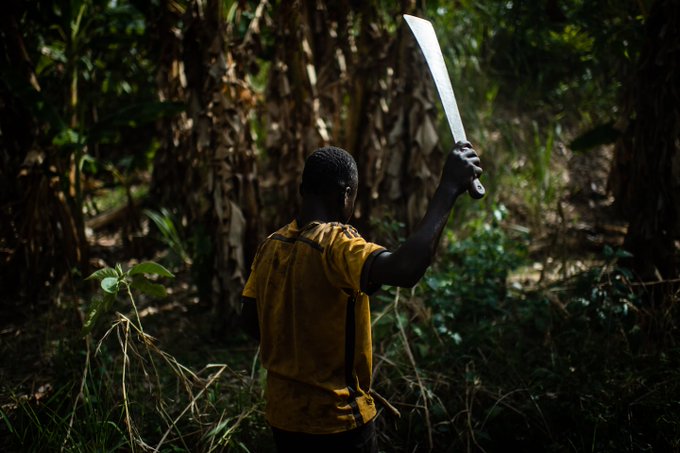
Chris Lange, FISM News
[elfsight_social_share_buttons id=”1″]
A human rights group is suing the Biden administration for failing to enforce a ban on cocoa harvested by enslaved children in West Africa.
International Rights Advocates (IRA) alleges that Customs and Border Protection and the Department of Homeland Security have ignored extensive documented evidence of forced child labor in the cultivation of cocoa used by American candy makers, including Cargill, Hershey, Mars, and Nestlé.
These and other chocolate makers in the U.S. once pledged to stop relying on child labor to harvest their cocoa by 2005. That declaration has since shifted to a pledge to eradicate the worst forms of child labor from their supply chains by 2025.
“They will never stop until they are forced to,” said Terry Collingsworth, International Rights Advocates’ executive director. He added that the U.S. government has “the power to end this incredible abuse of African children by enforcing the law.”
In February 2021, IRA sued Nestlé, U.S.A., Cargill, Incorporated, Cargill Cocoa, Barry Callebaut USA LLC, Mars, Incorporated, Mars Wrigley Confectionery, Olam Americas, Inc., the Hershey Company, and Mondelēz International on behalf of eight children who escaped labor enslavement in the Ivory Coast. That case is still pending.
According to A 2018 report by End Slavery Now, a project of the National Underground Railroad Freedom Center, children forced to work on cocoa plantations – some as young as 5 – are either kidnapped, sold into enslavement by their families, or lured by traffickers promising better lives and good-paying jobs. The reality is that the children are forced into hard labor and regularly subjected to beatings for slow work or attempts to escape. “Many chocolate slaves never see their families again,” the report states.
A 2019 University of Chicago Norc study commissioned by the U.S. Department of Labor’s Bureau of International Labor Affairs found that 43% of the 1.56 million children forced into slave labor work on cocoa farms in the Ivory Coast and Ghana. They are exposed daily to burning fields, dangerous agrochemicals, and required to lift heavy loads and use sharp, dangerous harvesting tools like machetes and chainsaws. More than half are injured in the course of their work.
DHS has so far declined to comment on the lawsuit. A representative told ABC News that the agency is “unable to disclose additional information or plans regarding forced labor enforcement activities due to protections of law enforcement sensitive and business confidential information.” The department has also recently come under fire for failing to protect migrant children in the U.S. from exploitation, including forced labor and sex-trafficking.
PROFIT OVER PROTECTIONS
Former Iowa Sen. Tom Harkin (D), who pushed for reforms to the chocolate industry during his tenure in Congress, said that corporate greed has fueled the proliferation of exploitive child labor in West Africa, according to Reuters.
“These [U.S.] companies kept saying, ‘We can’t trace it back.’ That’s BS,” he said. “They just won’t do it because it will cost them money,” he said.
Harkin added that most Americans are likely unaware that the sweet treats they enjoy are products of child exploitation and abuse.
“It’s not just the chocolate you eat, it’s the chocolate syrup you put on your ice cream, the cocoa you drink, the chocolate chip cookies you bake,” he said.
The World Cocoa Foundation, which represents several major cocoa companies, told the news service that it is committed to “improving the livelihoods of cocoa farmers and their communities.”
Ivory Coast officials, meanwhile, insist that they are working to eradicate child labor but stressed that barring imports of cocoa will destroy the nation’s economy.
